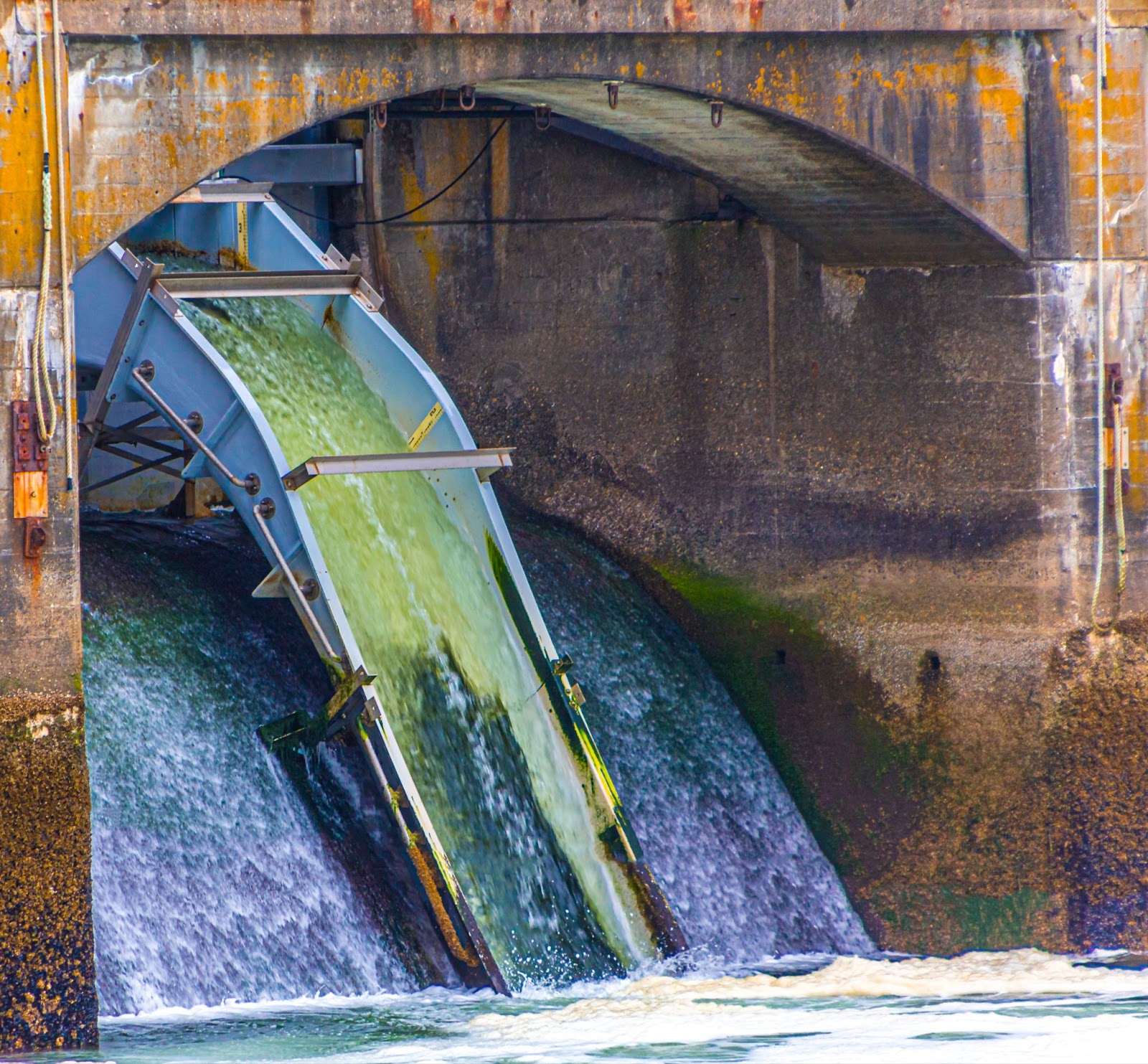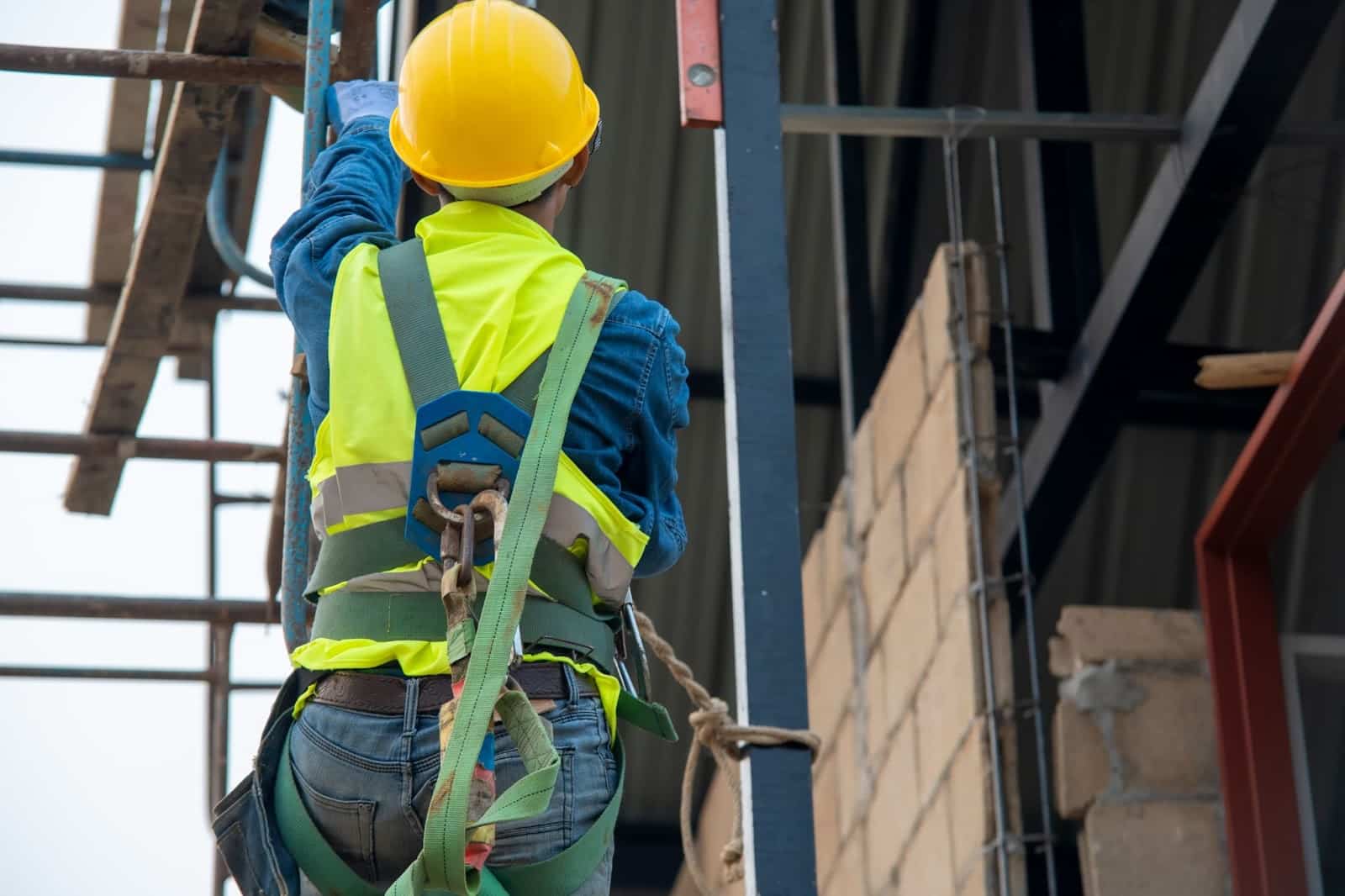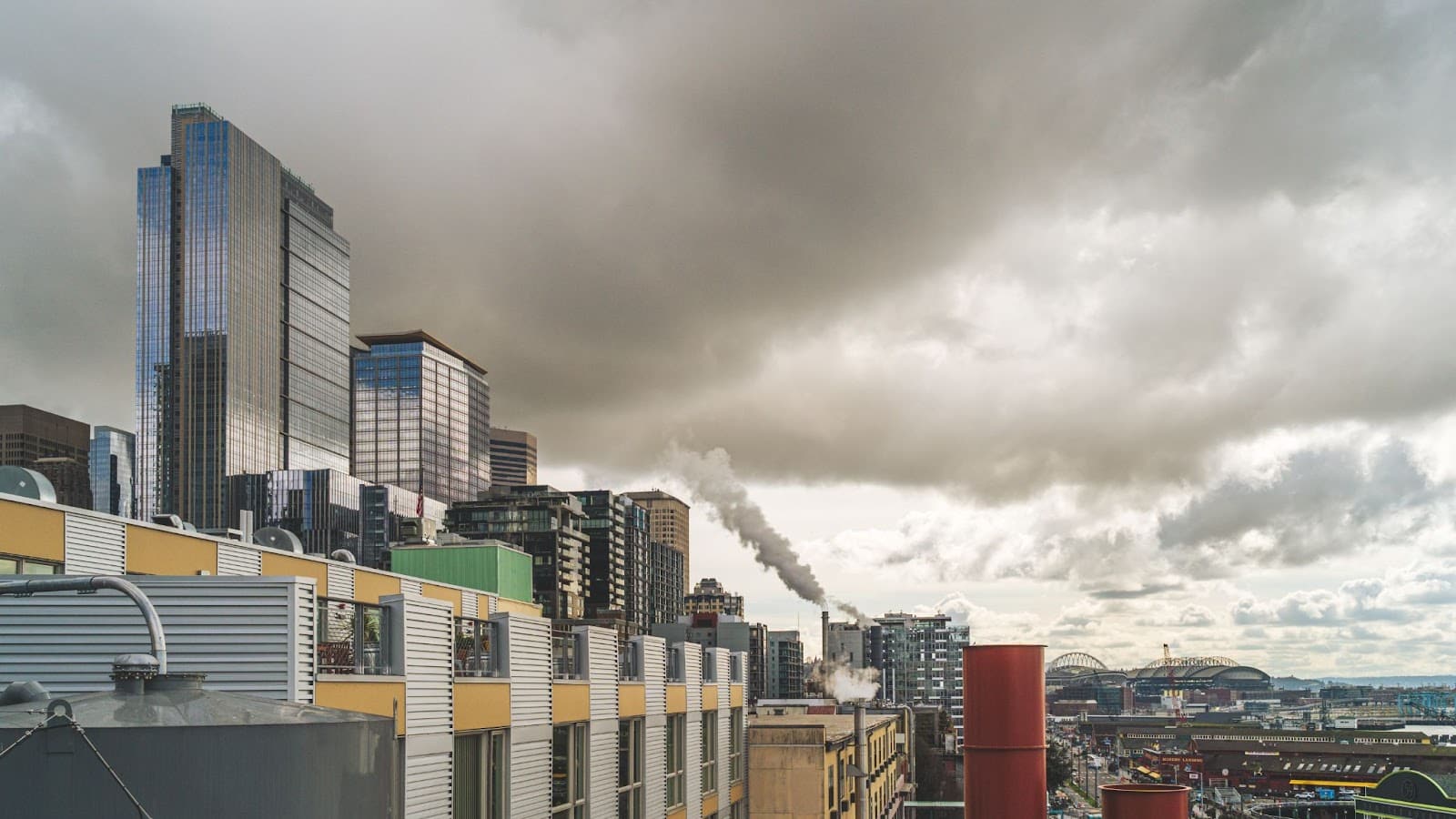Menu
close
A dense urban layout, wet climate, and proximity to protected waterways create unique EHS challenges for Seattle companies. Runoff, air emissions, and noise are all under the microscope, so businesses need to stay sharp or risk costly enforcement. Read on for a breakdown of the main EHS concerns to be aware of and how to address them.

Seattle’s geography and climate create unique environmental risk factors. Frequent rainfall and uneven terrain increase stormwater runoff, especially for businesses operating near the Duwamish River or in industrial zones. City and state agencies closely monitor discharge activity, and violations can escalate quickly—especially when sensitive waterways are involved.
Air quality compliance is another key EHS concern for businesses. Local regulations from the Puget Sound Clean Air Agency work alongside federal EPA standards under the Clean Air Act to limit emissions from industrial and commercial operations. Business owners must monitor pollutants like particulate matter, volatile organic compounds (VOCs), and hazardous air pollutants (HAPs), and ensure permits and reporting are up to date. Failing to comply can lead to fines, legal action, and reputational damage. Staying informed on both local and federal requirements is critical—especially in a city committed to sustainability and public health.
Hazardous materials also come under the microscope. Storage, labeling, and disposal protocols are strictly enforced, and noncompliance carries a risk of both fines and public backlash. On top of that, growing local focus on energy use and refrigerant systems means businesses with outdated HVAC setups may find themselves flagged during inspections (Learn more about Washington’s Refrigerant Management Program).

Seattle’s construction and maritime sectors face some of the state’s most rigorous safety enforcement. Fall protection, silica exposure, and confined space entry remain major focus areas for inspectors. Manufacturing, warehousing, and logistics centers also face rising scrutiny. Whether it’s forklift safety, racking stability, or indoor air quality from volatile chemicals, even small lapses can lead to citations. OHS consulting services can help your company navigate this complex landscape.
Facilities involved in electronics or biotech often use specialized equipment and cleanrooms, which come with strict standards for chemical handling, emergency response, and ventilation. Even low-hazard workplaces like retail stores and offices aren’t immune to compliance risks. Mold from roof leaks or poor ventilation, outdated ergonomics, and inconsistent emergency planning are all areas where health and safety issues arise. Consistent investment into risk assessment is a great way to ensure nothing escapes your attention.
These concerns may seem minor, but if left unchecked, they can lead to formal complaints or even OSHA investigations.

Seattle’s changing climate is bringing new health and safety concerns to the forefront. Longer, hotter summers are pushing outdoor workers—especially in construction, landscaping, and delivery—to the limit. Employers now need clear protocols for hydration, rest, and heat illness prevention, or they could face penalties.
During the wet season, the risks shift. Slick floors, icy walkways, and flooding in older buildings can all create hazards for employees and visitors. Businesses without a basic winter safety plan often see a rise in injury reports this time of year. Many businesses still lack written policies for this, leaving them exposed to liability and operational disruption as well.
Seattle’s environmental regulations move fast and hit hard. Agencies like Washington L&I, Seattle Public Utilities, Puget Sound Clean Air Agency, and WA Ecology all have a hand in enforcement—and they don’t wait around.
Green building codes, stormwater permits, and the Clean Buildings Performance Standards go well beyond state and federal baselines. Timelines are tight. Guidance changes often. Businesses that aren’t proactive risk violations, delays, and fines.
Staying compliant in Seattle takes more than checking boxes. You need a clear plan, up-to-date knowledge, and fast execution. The SP Group helps businesses across industries manage local, state, and federal EHS requirements without falling behind.
If you're not sure where you stand—or want to avoid costly mistakes—reach out to our team today!